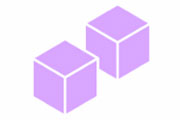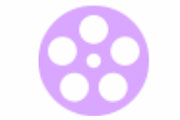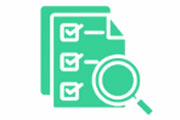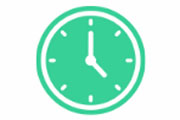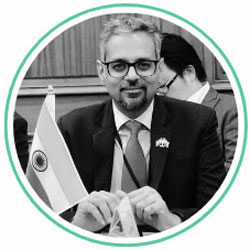Best Practices and Global D&I Champions
Last month’s blog covered a range of technological solutions towards monitoring and improving organisational D&I metrics and benchmarks. In this month’s blog, we’re going to take a closer look at companies around the world (and in India) that are excelling and making strides when it comes to diversity and inclusion practices. You’ll notice that they vary across industry and are embracing diversity in different ways. The intent is to draw/learn from these organisations and think about how we can develop our own diversity and inclusion strategies.
Global D&I Champions:
At the very outset, it is worth noting that according to global D&I scorecards:
- The United States is leading with at least 25 companies out of the top 100. (Click here for a more detailed list of the best D&I performing companies for the year 2021)
- The industry with the highest D&I score is software and IT services,
- Gap, Inc. ranked first on the D&I index for 2021
Let’s take a closer look at some of the organisations that have performed well on D&I on a global scale:
1.Sodexo
Industry: Quality of Life Services
Number of Employees Worldwide: 460,000+
While gender, generations and sexual orientation are all part of the diversity hiring strategy at Sodexo, “gender balance is their business” with 55% of all staff members in Sodexo being women (up from just 17% in 2009). 58% of the members on the board of directors are female and the company runs 14 Gender Balance Networks worldwide. What they have found is that when there is gender balance within an organisation, employee engagement increases by 4 %,, gross profit increases by 23% and brand image strengthens by 5 %.
2. Johnson & Johnson
Industry: Medical Devices, Pharmaceutical and Consumer Packaged Goods
Number of Employees Worldwide: 132,000+
J&J’s Global Diversity and Inclusion vision is “to maximise the global power of diversity and inclusion, to drive superior business results and sustainable competitive advantage. J&J has strong employee resource groups, mentoring programmes and a ‘Diversity University’, which is a dynamic website that helps employees to understand the benefits of working collaboratively. The Chief Diversity officer also reports directly to the CEO and Chairman of Johnson & Johnson, meaning that senior leadership is intimately involved in achieving D&I goals. J&J has received various awards and recognitions for strides made in diversity efforts, and is one of only two companies that have been on the Working Mother 100 Best list for the past 28 years.
3. Mastercard
Industry: Financial Services
Number of Employees Worldwide: 13,400+
Mastercard consistently makes it into the Top 10 of DiversityInc’s 50 Best Companies for Diversity list. They believe that “diversity is what drives better insights, better decisions, and better products. It is the backbone of innovation”. A unique initiative that Mastercard has executed over the past few years involves getting older employees in the company more active when it comes to social media. To address generational barriers, “YoPros” BRG (the Young Professionals Business Resource Group) offers a one-on-one ‘Social Media Reverse Mentoring’ program to older employees who want to become familiarised with the platforms.
4. Accenture
Industry: Professional Services/Consulting
Number of Employees Worldwide: 513,000+
Accenture believes that “no one should be discriminated against because of their differences, such as age, disability, ethnicity, gender, gender identity and expression, religion or sexual orientation.” Diversity training within the company is broken into 3 different categories:
1) Diversity Awareness – to help people understand the benefits of working with a diverse organisation.
2) Diversity Management – to equip executives to manage diverse teams.
3) Professional Development – to enable women, LGBT and ethnically diverse employees to build skills for success.
The organisation also hosts a company-wide celebration of International Day of Persons with Disabilities as well as endeavour to help their employees with various supports, like assistive technology, flexible work arrangements and additional training.
5. Ernst & Young
Industry: Professional Services
Number of Employees Worldwide: 280,000+
At EY, they believe that “only the highest-performing teams, which maximise the power of different opinions, perspectives, and cultural references, will succeed in the global marketplace.” The organisation was the first of the Big Four to assign full-time, partner-level leadership to diversity recruiting. Ever since, the number of women in top executive management positions has increased by more than 20% and programmes such as ‘EY Launch’ which is for ethnically diverse college freshmen, sophomores and transfer students builds awareness of accounting as a major and professional services as a profession.
6. Coca Cola
Industry: Beverage
Number of Employees Worldwide: 86,200+
At Coca-Cola, diversity is seen “as more than just policies and practices”. It is an integral part of who the company is, how they operate and how they see their future. Diversity education programmes include Diversity Training, a Diversity Speaker Series and a Diversity Library. In 2017, a new parental benefits policy was implemented, whereby 6 weeks of paid leave is extended to all new mothers and fathers. The move was championed by ‘Coca-Cola Millennial Voices’, a group of young employees tasked with making sure there is a healthy level of employee retention in millennial consumers and staff members.
7. Marriot
Industry: Hospitality/Tourism
Number of Employees Worldwide: 174,000+
Named as one of the ‘World’s Best Multinational Workplaces by Great Place to Work’, the world’s largest annual study of workplace excellence, Marriott International extends their commitment to creating an inclusive guest experience to their workforce around the globe. Women-owned business enterprises make up approximately 10% of Marriott’s supply chain and they vow to spend $1 billion with diverse-owned businesses by 2020. LGBT inclusion is also a top priority for Marriott International. They received that ‘Best Place to Work for LGBT Equality’ accolade when they earned a perfect score on the HRC’s 2016 Corporate Equality Index, a widely recognised benchmark for diversity and inclusion.
8. Novartis
Industry: Pharmaceuticals
Number of Employees Worldwide: 125,000+
Novartis believes that diversity is integral to their success, because it helps them to understand the unique needs of their patients and find innovative ways of addressing those needs. Within the organisation, the word ‘disability’ has been replaced with ‘diverseability’ because they don’t view people living with disabilities as having a lack of ability, but rather having diverse skills and proficiencies. Human Resources professionals in the company are also educated on topics such as unconscious bias, inclusive leadership, disabilities/accommodations and compensation/pay equity in order to improve their diversity hiring methods.
9. Microsoft
Industry: Computer Software
Number of Employees worldwide: 163,000 +
The tech company provides day-care services and has an employee resource group voluntarily formed by workers. The company also set targets to be achieved on diversity and inclusion and has a policy regarding gender diversity and a policy to promote diversity and inclusion in its workforce. When it comes to racial and gender diversity, Microsoft also tops the list. According to data from 2020, 39.7% of the company’s board was made up of racial and ethnic minorities, and its workforce as a whole was 49.8% racial or ethnic majorities. Based on the same data, Microsoft’s managers also consisted of 41.3% racial or ethnic minorities.
D&I in the Indian context:
In the case of organisations in India, we do not perform as well as companies in the west (most MNCs in India tend to have a better track record because of global mandates). However, in recent times, conversations in India around D&I have been strengthened by the explosion of social media, increased awareness of global events, policy initiatives, efforts by advocacy and consultancy organizations and some progressive judgments from the Indian judiciary. During Pride Month in 2019, several India Inc. members came forward to discuss the importance of D&I and the measures they have put in place to ensure a more supportive and collaborative work environment.
Let’s look at some noteworthy initiatives in the Indian context:
1. Myntra
With measures such as reserved parking for expecting mothers, an in-house creche in their Bangalore office, and the #WeForShe initiative, which conducts brown bag sessions to holistically address the challenges faced by women at the workplace, be it casual sexism or beyond – Myntra seems to be raising the bar for how Gender sensitization and Diversity is approached in the modern Indian workplace.
2. Zomato
Zomato has announced paid maternity and paternity leave for all their employees, and also extended this to non-birthing parents (parents who have adopted children). Another slightly controversial policy that they announced was the controversial Period Leave for all women and transgender employees facing discomfort due to menstruation. A policy implemented in good faith, with employees having the discretionary power not to misuse the leaves.
3. Godrej
Legacy company Godrej values diversity in experiences and beliefs to shape a well-rounded workforce. Their HR policies allow you to add a partner as a health insurance beneficiary and not just a spouse. They have work-from-home policies, flexible timings, and other such measures to make employees feel safe and welcome. They are ultimately trying for all their employees to have the same experience, be it in the Mumbai office or in the hinterlands of India.
4. Tech Mahindra
Tech Mahindra has received global recognition for its excellent Diversity and Inclusion policies. They have a gamut of policies to meet the needs of all – the parents, the kids, the LGBTQ+ community, new mothers, people of different nationalities, ages, sexes, specially-abled people, underprivileged communities, etc. Programs such as COLORS, Mentoring Tables, Role Model Series give women an opportunity to develop their careers. They also have self-defense and financial wellness programs for women to have a secured future.
5. Infosys
The D&I vision of the corporation is an integral part of the Infosy Code of Conduct contained in a powerful tenet viz., ‘Respecting Each Other.’ D&I Goals on the corporate scorecard flow into leader and manager goal sheets. D&I councils at the business unit, location, and geo levels provide a rich matrix of responsibilities and relationships to collaborate on the strategic intent of the organization to build inclusion for everyone. Employee Resource Groups (ERGs) act as huge enablers. Some of the ERGs at Infosys India include: Infosys Women’s Inclusivity Network, InfyAbility (for employees with disabilities and their allies; iPride (for employees of the LGBTIQA+ community and their allies) and Family Matters for all employees focusing on childcare; parenting; relationships; health and wellness. ERGs serve to strengthen peer support groups towards building inclusive work environments.
6. FedEx Express
In Feb 2021, FedEx express, a subsidiary of FedEx Corp (NYSE: FDX) and the world’s largest express transportation company, was recognised with the award for ‘Best Gender Equality Workplace’ by the World HRD Congress at the Diversity and Inclusion Leadership Awards 2021. Their commitment to diversity, inclusion and gender equality is an integral part of their culture and strongly believe in providing all team members with an equal opportunity to excel and grow. Recently, FedEx Express launched the Leadership, Education, Advancement, and Placement (LEAP) initiative in its MEISA region; a mentoring program aimed to equip women with mentorship opportunities, and the tools they need to advance their career within the organization. To showcase its commitment to helping women in the workplace advance their careers and explore possibilities. FedEx has been named by Forbes Magazine in 2019 as one of the Best Employers for Diversity globally, and was also recognized as one of the top Top 50 Best Workplaces for Women 2020 in India, by the Great Place to Work® Institute.
Other initiatives that deserve attention:
- The Kochi Metro which hired 23 transgender persons (in 2017), deploying them in different sections based on their qualifications. The progressive move garnered a great deal of attention, and rightly so. However, soon after the news broke, about 10 of these employees quit, as they were unable to find accommodation in Kochi , thus highlighting the systemic barriers that continue to operate at a societal levle.
- Nukkad, The Teafe, in Raipur is reversing social barriers by only employing transgenders and people with visual and speech impairments. The intention behind this endeavour is to provide a space of equal opportunity for marginalised groups of individuals – who are more or less persistently denied opportunities to work and progress, because of their perceived physical capabilities and their affiliated social stigmas.
- The Lifestyle brand and company designed a remarkable initiative, called the “Creating A Ripple” program whose objective was to create an ecosystem where employees display a high degree of sensitivity and empathy towards each other’s issues / problems / troubles (grievances). To encourage this cultural change, activities and training programs were conducted across the organization. Employees were introduced to the idea that they themselves could help another employee with a grievance where they were given a choice to be a solution provider, a connector or even an empathizer.
- Recently, Diageo India rolled out an “enhanced wellness policy” for all employees effective July 2020 regardless of sexual orientation, gender identity or expression, including LGBT+. As part of the company policy, “medical coverage and leave benefits are to be extended to both same sex and opposite-sex domestic partners”. It also provides medical coverage for gender confirmation procedures. Similarly, surrogacy and fertility treatment medical benefits will be made available for all employees thus involving a revision to the definition of family to include ‘same sex’ and ‘live-in’ partners.
- L’Oréal India, which is the only FMCG company in the country that has been awarded the advanced EDGE (Economic Dividends for Gender Equality) MOVE level certification for gender equality, has inclusivity policies like medical insurance that covers employees with same sex partners. “Our LGBTQI+ employee base feels respected, valued and entitled to every opportunity and benefit that any other employee would. Notably, this year, the company launched the Employee Human Rights Policy “with the principle of non-discrimination, particularly for the LGBTQ+ community” and covering aspects like hiring, remuneration, access to training, company benefits and services, promotions, terminations or retirement.
Although Indian companies (not MNCs) have a long way to go, it is endearing to see them take steps towards gender diversity and inclusion by enabling conversations and policies that get the ball rolling. It must be said that India’s diversity is complex and inclusion goals require great nuance and concerted efforts to be truly impactful. Our involvement with organisations over the last two years also indicates a growing awareness and desire to enhance and empower diverse employees within the workplace. In particular our flagship women in leadership program – She-Leads has been an incredible success at DXC Technology (for over 200 participants) where we have seen tangible results and shifts in mindsets.
Having laid out all these best practices and success stories over a series of blogs these last few months, I now ask you to introspect on what diversity and inclusion means in your organisation and what has worked (or not) for you?
Ask yourself:
- Do I feel a sense of belonging in my organisation?
- Does everyone in my team truly feel that their ideas and suggestions are considered when making decisions?
- What does leadership in my organisation look like?
- What does the language used in corporate documents or during meetings sound like? – is it gender-inclusive? Or does it make some people in the room feel that they don’t belong there?
- What policies does my company have in place to support people from diverse backgrounds? Is the tone of these policies about mutual respect or just meeting legal obligations?
As you reflect on these questions, do check out our flagship D&I program – We-Lead – to learn more about how we can help you address, improve and align diversity and inclusion goals in your organisation.
Keya Bardalai is a Senior Research Consultant at Syngrity. She has a Ph.D. in Social Anthropology and specializes in work and employment in the service economy. Keya has a keen interest in gender in the workplace and works on how spaces can be made more just, equitable, and inclusive for all.
SOURCES:
https://apna.co/blog/indian-companies-at-the-forefront-of-diversity-and-inclusion-at-work/
https://www.peoplematters.in/article/diversity/creating-inclusive-workplaces-for-india-29576
http://orinam.net/resources-for/workplace/list-of-transgender-plus-inclusive-employers-india/
https://linkhumans.com/diversity-inclusion-tech-companies/


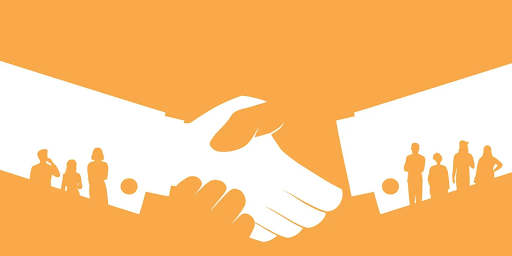




 MALATI VASUDEVA
MALATI VASUDEVA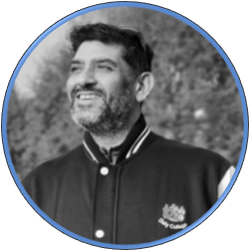 VIKRAM BADHWAR
VIKRAM BADHWAR PRIYANKA KUMAR
PRIYANKA KUMAR SUMAL VARGHESE
SUMAL VARGHESE


